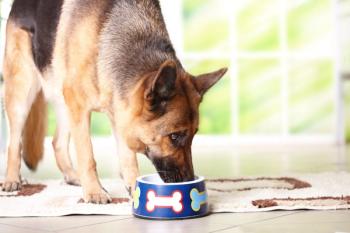
Inflammation is the new obesity
To improve health for all, its time to shift the way we discuss overweight pets with our veterinary clients.
I've been studying and working on pet and human obesity for nearly 20 years. In that time I've witnessed the obesity discussion evolve from “fat is funny” to “fat is deadly” to “fat is boring.” People ignore warnings about obesity the same way they disregarded the fact that smoking was deadly for decades. Deep down folks know being overweight or having a portly pet is unhealthy; they just don't think it will happen to them. Psychologists call this phenomenon of believing you or your pet is at less risk for harm “optimism bias.” It's a coping mechanism that allows us to get through our days without having a breakdown. It also gets in the way of change. Maybe it's time we change how we talk about patient obesity.
Change perception
For the last three years, I've altered the way I describe obesity to clients and veterinarians. Pet owners see a “big pet.” Most veterinarians see a “fat pet.” I see an “adipokine storm.” Adipo-what?
5 steps to fight fat
As a profession we can reshape the obesity conversation by doing the following:
> Define obesity. Currently we can't define what “clinically obese” is in animals. We don't know what we're talking about when we say “overweight” and “obese.” I'm officially offering the Association for Pet Obesity Prevention (APOP) to help jumpstart the conversation. Now I need the help of academicians, practitioners and industry representatives.
> Standardize body condition scores (BCS). There are three or four major BCS used worldwide. I'll be the first to agree that there are limitations to the BCS. But they're simple to administer, work well in most situations and are already in use. Let's get together and settle on one scale.
> Define prediabetes. I fought this until I started looking at studies on humans who were diagnosed as prediabetic. It helps. There's growing evidence that we may be able to intervene before full-blown diabetes develops, especially in cats. There are useful biomarkers that could help general practitioners identify early the pets at risk for developing diabetes.
> Define obesity as a disease. The American Medical Association officially defined obesity as a disease for humans in 2013. I'd like to see the American Veterinary Medical Association and the American Animal Hospital Association follow. Classifying obesity as a disease would encourage more veterinarians to talk with clients about the condition.
> Develop better technology. We need a technological solution to quickly and accurately assess body fat composition in dogs and cats. At this point I'd even settle for biomorphic software that estimated underlying fat. We desperately need improved tools for tracking weight, BCS and dimensions.
Adipokines are signal proteins produced by fat tissue. Leptin, adiponectin and interleukin-6 (IL-6) are examples. We know adipokines cause or contribute to hundreds of harmful inflammatory processes throughout the body. Think of every fat cell as a little factory pumping out hundreds of potentially toxic compounds. Multiply that by millions or billions in an obese pet. The real danger of excess fat isn't the fat; it's the inflammation the fat causes.
Inflammation is the biggest health threat our pets face. That's a bold statement but I'm confident it's soundly supported by science. The more we learn about excessive inflammation, the more we understand the importance of keeping it at safe levels.
Speak out
Perhaps the biggest obstacle in the war on pet obesity is our silence. Veterinarians complain they aren't comfortable talking candidly about a pet's weight for fear of inadvertently offending the client. Forget fat; start talking about inflammation. Learn about adipokines, cytokines and disrupted metabolic pathways caused by inflammation. It's a fascinating world of biochemistry that has real impact on our patients.
It's time we reshape the obesity conversation to center on inflammation.
Veterinary Economics Editorial Advisory Board Member Dr. Ernie Ward is the author of the book Chow Hounds: Why Our Dogs Are Getting Fatter-A Vet's Plan to Save Their Lives, a speaker, and founder of Seaside Animal Care in Calabash, North Carolina.
Newsletter
From exam room tips to practice management insights, get trusted veterinary news delivered straight to your inbox—subscribe to dvm360.



